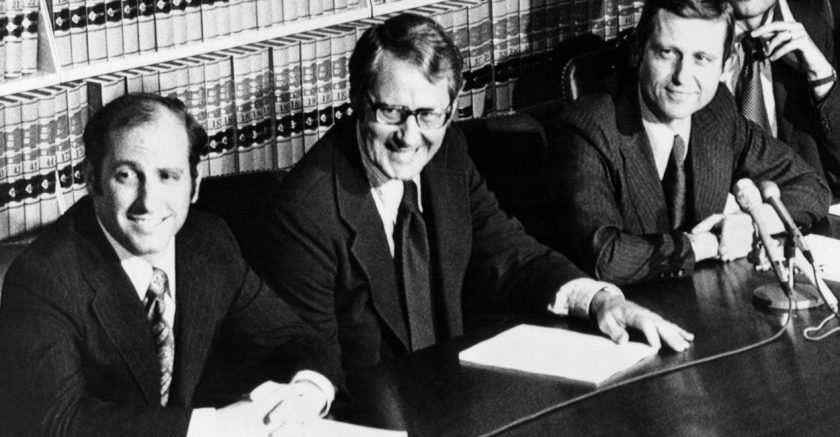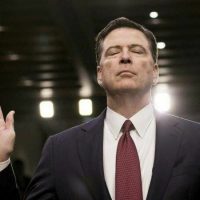Democrats and a few Republicans—most notably among the latter outgoing Sen. Jeff Flake of Arizona—have pushed legislation to protect special counsel Robert Mueller from being fired by the president.
For his part, President Donald Trump has repeatedly insisted he doesn’t intend to fire Mueller. Still, critics of the president are not convinced.
The legislation isn’t likely to pass, however—and if it did, it would likely face a presidential veto, along with questions of its constitutionality.
The concern about the fate of the special counsel has historical precedent. Three former special prosecutors—including the first—were sacked.
Grant, Henderson, and the Whiskey Ring
In early 1864, as the Civil War raged, Sen. John Henderson of Missouri was among the first to draft a constitutional amendment to abolish slavery.
The Virginia-born Henderson, a former Democrat, represented in the Senate what was then considered a Western state, Missouri, which both the Union and Confederacy claimed. So, his backing was important political symbolism.
The 13th Amendment was ratified by the states in late 1865, well after the end of the Civil War and the assassination of President Abraham Lincoln.
In 1868, Henderson was on the outs with his party after he and six other Senate Republicans voted against removing President Andrew Johnson from office. The House had impeached Johnson, a Democrat, for violating the Tenure of Office Act.
After leaving the Senate, Henderson found himself again in the national spotlight.
In the early 1870s, President Ulysses S. Grant, a Republican, was having problems with his party after scandals had piled up among his appointees.
Among Grant’s problems was appointing former military officers to key administration positions—namely, former Civil War Gens. Orville Babcock and John McDonald.
He had sent McDonald, the revenue supervisor with the Treasury for the St. Louis area, to shore up political support. McDonald established what came to be known as the Whiskey Ring.
It began as a scheme among federal bureaucrats working with whiskey distillers to skim revenue from sales and divert the money to Republican political campaigns. The ring operated mostly in St. Louis, Chicago, and Milwaukee.
Grant was re-elected in an 1872 landslide, and down-ballot Republicans did well. The ring was no longer needed for political purposes, so, starting in 1873, the bureaucrats and distillers continued the ring to line their own pockets.
Read the full story from The Daily Signal
Want more BFT? Leave us a voicemail on our page or follow us on Twitter @BFT_Podcast and Facebook @BluntForceTruthPodcast. We want to hear from you! There’s no better place to get the #BluntForceTruth.







